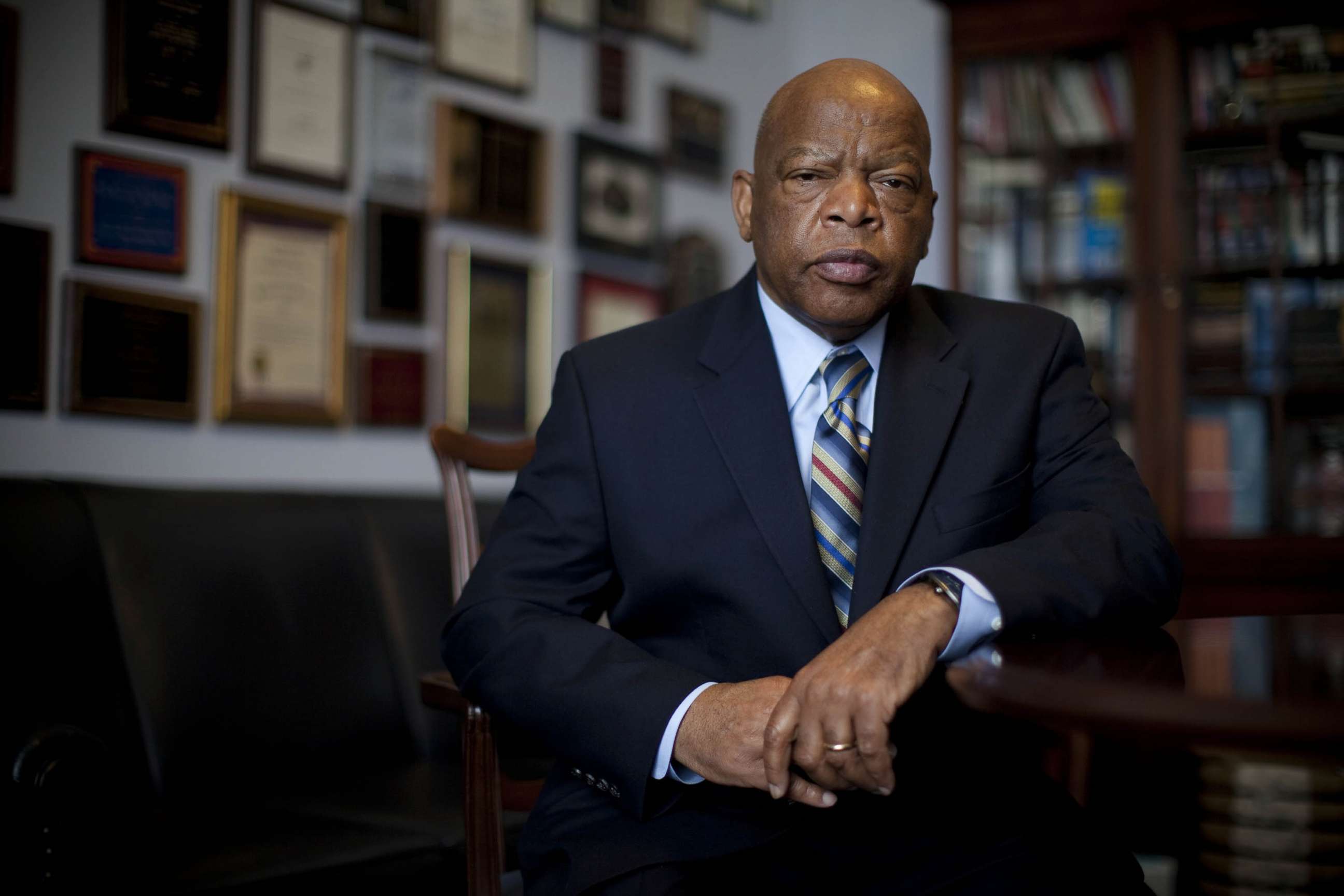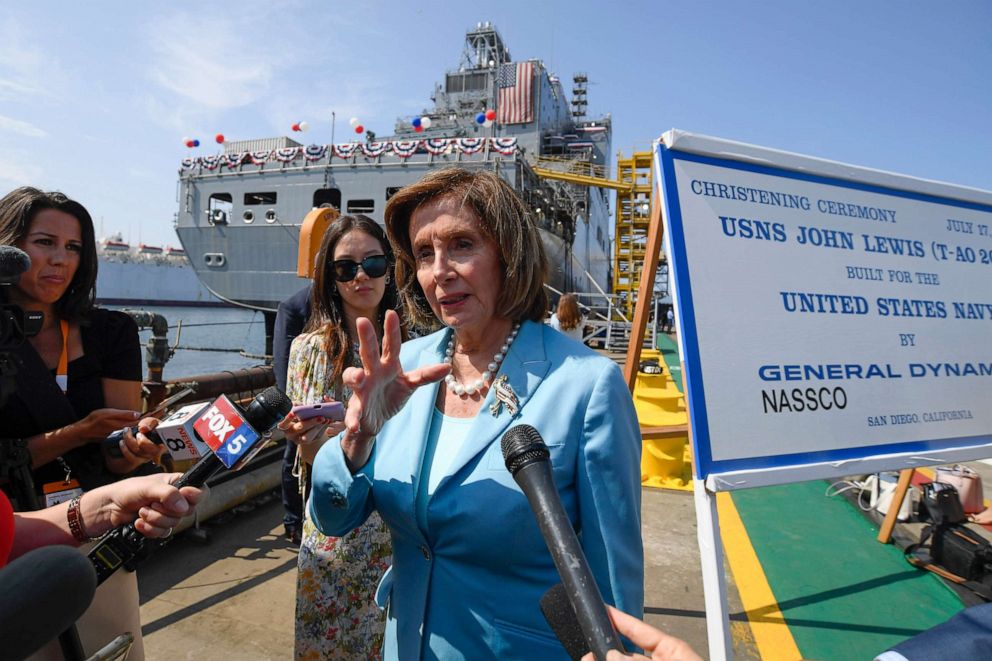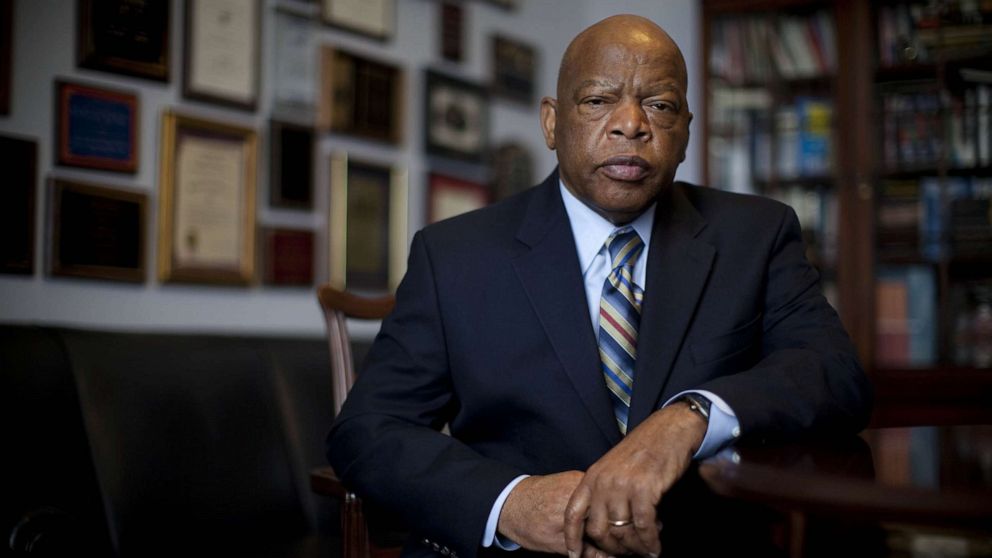1 year after death of John Lewis, voting rights remain key issue
One year after the death of Rep. John Lewis, the longtime representative of Georgia's 5th Congressional District and civil rights icon, his dedication to ensuring equal access to the ballot is as relevant as ever.
Saturday evening, Lewis was honored at Black Lives Matter Plaza in Washington, D.C., with a "Good Trouble" candlelight vigil, where Texas House Democrats who traveled to D.C. earlier this week attended.
The Texas lawmakers happened to be in town for the event because they remain on the lam in the nation's capital, after they fled the Lone Star State on Monday to break quorum and wait out the end of their special legislative session in order to block Republican-backed bills that would change the state's voting and election laws in ways advocates say would make it harder to cast a ballot.
One of the main speakers at the vigil was Texas state Rep. Carl Sherman, one of those who left the state.
"[I am] the son of a single mother who worked hard, two jobs and never had enough -- the husband of one wife of 34 years, the father of five children and the grandfather of five," Sherman said. "[I'm a] Texan since birth and proud representative of some of the most beautiful people in Texas. Now, according to The Dallas Morning News, I can add to that, that I'm standing up as a fugitive from Texas."
Sherman said that he was standing up for his community and to be a representative of democracy. Sherman praised Lewis for being drawn to the "good fight."
"He was drawn to the righteous fight, and on behalf of the Texas legislative fugitives who stand here with me, we stand in solidarity in truth," Sherman added

The Texas Democrats met Thursday on Capitol Hill with West Virginia's Joe Manchin, the moderate Senate Democrat who holds the key vote in Congress on voting rights legislation.
The For the People Act -- which aims to make major election reforms that lower barriers to voting and which Republicans have cast as a "power grab" -- remains blocked by Senate Republicans and has prompted a call from some Democrats to blow up the filibuster to enable passage.
Two days before the meeting with Manchin, President Joe Biden made an impassioned speech about what he characterized as Republican efforts to restrict voting rights. Sixteen states have enacted 28 laws that would restrict voting access, out of hundreds introduced throughout the country, according to the Brennan Center for Justice. These laws have often been defended by Republicans as bolstering election integrity on the heels of baseless claims that the 2020 election was stolen.
"There is an unfolding assault taking place in America today, an attempt to suppress and subvert the right to vote in fair and free elections, an assault on democracy, an assault on liberty, an assault on who we are as Americans," Biden said Tuesday at the National Constitution Center in Philadelphia.
In June, the Department of Justice announced it was suing Georgia over its election law passed by Republicans, saying it violates the federal Voting Rights Act since it seeks to disenfranchise Black voters.
As recently as Friday, Vice President Kamala Harris, who has been tasked with leading the administration's efforts to protect voting rights, met with Melanie Campbell, president of the National Coalition of Black Civic Participation, and other Black female activists to discuss the issue. Many of them had participated in a demonstration of civil disobedience at the U.S. Capitol the day before.
And earlier this month, a divided U.S. Supreme Court upheld Republican-backed Arizona voting restrictions, rejecting claims that they discriminate against minority voters and imposing new limits on the landmark Voting Rights Act.
As tributes to Lewis pour in from political leaders, many have said the passage of voting rights legislation is the best way to honor his life and legacy.
"The best way to honor Congressman Lewis's legacy is to carry on the fight -- by passing the John Lewis Voting Rights Advancement Act as well as the For the People Act, and by helping eligible voters no matter where they live get registered and vote, and have their vote counted," Harris said in a statement Saturday.
The John Lewis Voting Rights Advancement Act would restore the pre-clearance formula from the Voting Rights Act of 1965, which was struck down by the Supreme Court in 2013. The bill passed the House in December 2019, but has not been taken up in the current Congress.

Throughout the country, celebrations were underway Saturday to honor the late congressman and his work. The Navy christened its first-in-class replenishment oiler the USNS John Lewis. House Speaker Nancy Pelosi delivered ceremonial remarks honoring him.
"It is fitting that we honor John Lewis with this formidable ship because John Lewis was a warrior, one of the mottos of the Navy is semper fortis -- "always courageous" -- and John Lewis was indeed always courageous," she said.
Biden also put out a statement in honor of Lewis about what it means to "deliver the promise of America to all Americans."
"Perhaps most of all, it means continuing the cause that John was willing to give his life for: protecting the sacred right to vote," he said.
ABC News' Alisa Wiersma, Benjamin Siegel, Trish Turner, Devin Dwyer and Rachel Scott contributed to this report.




